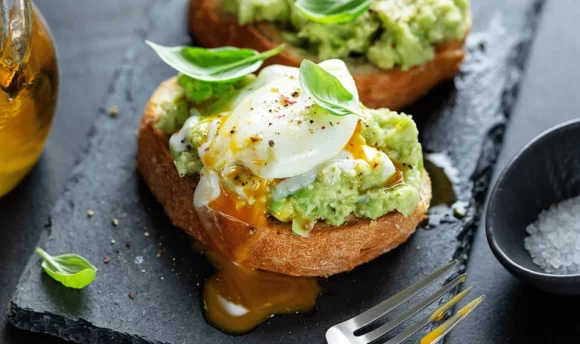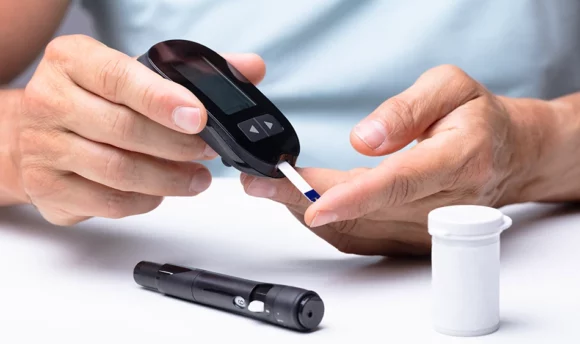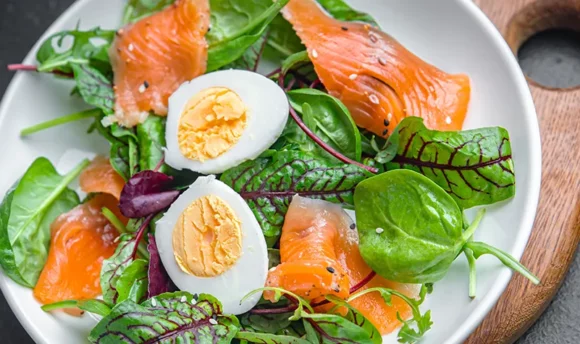Keto While Sick: All That You Need to Know
Keto sounds like a lot of fun when you’re in good health and have all the energy to power through the meals. But what happens when you’re coming down with a nasty illness and can barely get through preparing your meals?

Constant sneezing, runny nose, and congestion can make it hard to get anything done. Common medication for cold and flu can even wipe out the work you did to get into ketosis in the first place.
Fortunately, there are some keto-friendly foods that can help you stay in ketosis despite being sick. They can help you rehydrate, replenish your electrolytes, and even ease the symptoms of common illnesses so you can get back on track without sacrificing your progress.
This article will go over some ways to stay in ketosis when you’re sick to continue losing weight even when not feeling well.
What to Eat on Keto When Sick?
It’s normal to lose your appetite when you get sick. After all, the last thing you probably want to do is eat when you have nausea, fever, diarrhea, or sore throat.
But if you’re following keto when sick, it’s important to continue eating small amounts of nutritious food throughout the day. Doing so can help keep your strength up and keep you hydrated.
While most foods are off-limits when you’re feeling under the weather, consider reaching for high-fat, low-carb foods. These include vegetables, poultry, fish, and seafood, healthy fats like olive oil or coconut oil, nuts and seeds, some berries like blueberries or raspberries, and dairy products including cheese or heavy cream.
Keto-Friendly Cold and Sore Throat Remedies
If you’re on a ketogenic diet, your body needs a constant supply of electrolytes. When you’re sick with a cold and sore throat, it can be hard to replace these vital nutrients.
Here are some essential remedies to help with cold and sore throat without hurting your weight loss goals:
#1 Bone broth
A delicious way to help combat cold, fever, and sore throat without adding extra carbs.
Bone broth is an age-old remedy that contains collagen that helps repair your throat while also hydrating you and replenishing electrolytes.
You can stick to chicken or vegetable broths. If you want to add some nutrients for extra support, you can use it as a base for a soup with all sorts of greens and spices like garlic powder and onion powder.
Not only will it make your throat feel better, but it will also give your body an additional boost of nutrition that will help stave off sickness longer!
#2 Soup
Being on a ketogenic diet while sick doesn’t mean you can’t also enjoy a comforting bowl of soup.
In fact, if you prepare your soup using low-carb ingredients, there is no reason why it should kick you out of ketosis.
All you have to do is make sure that everything added to your soup contains less than 0.5g net carbs per serving (the number of carbohydrates left after subtracting fiber from total carbohydrates). Add plenty of healthy fats and fill up on keto-friendly vegetables for an ultra-satisfying meal that provides your body with adequate nutrition for fuel and energy.
Pro Tip: Skip all soups containing flour (like cream-based soups), beans, lentils, soybeans, peas, and corn. These foods will kick you out of ketosis.
#3 Ginger and lemon tea
Ginger and lemon are superfoods for the cold, and sipping on ginger and lemon tea can greatly help reduce your symptoms.
The natural heat of these drinks helps o unclog your stuffy nose and loosen mucus, while their anti-inflammatory compounds like gingerol soothe inflammation, fight infection, and improve circulation.
Plus, drinking warm fluids such as hot lemon water is one of those home remedies that always work when you’re sick because it helps hydrate and replenishes your electrolytes – making you feel better faster! Drinking keto-friendly herbal teas like peppermint, chamomile, and ginger (in moderation) won’t raise blood sugar or kick you out of ketosis.
How to Stay Keto When You’re Sick? 4 Simple Tips
One of the worst things about being sick while on keto is that you can’t eat most comfort foods. Many of them contain large amounts of carbs and sugars, which may kick you out of ketosis. Even worse, if your immune system is compromised by a virus or a certain illness, then you might even be prone to keto rashes or electrolyte imbalances.
If all these factors combine together, then there’s no doubt you’ll have a tough time staying keto when ill. However, it doesn’t mean it can’t be done!
#1 Get enough sleep
While battling a cold or infection, it is important to try and get as much sleep as possible. By sleeping seven hours or more each night, your body is able to fight off infections, process medicines, and repair cells that were damaged from illness. On the other hand, lack of sleep can be detrimental to your body’s recovery processes.
Moreover, when you aren’t eating sugar or taking in carbohydrates, your body starts burning stored fat for energy. And if you haven’t been getting enough sleep, your body won’t be able to use its fat stores properly. Instead, it will use them all as fuel and kick you out of ketosis.
#2 Stay hydrated
It is important to stay hydrated when you are dealing with a cold or flu. Dehydration can knock you out of ketosis and make you feel even worse than before. That’s why it’s important to drink enough water as it doesn’t contain any carbohydrates or affect your ability to burn fat for energy.
If you don’t like to drink plain water, you can have coconut water and chamomile tea to boost your hydration levels without introducing excess carbs back into your system.
What’s more, you can aid your keto pursuit by avoiding sugar-based drinks such as juice and soda. While these drinks are generally good for your health, their high carb content may disrupt your attempts at losing weight.
#3 Consume more fat
When it comes to being sick on a keto diet, remember: fat is your friend. It will help you feel satiated, which is important when nausea or vomiting are keeping you from eating.
Consider adding healthy fats like avocado, coconut oil, grass-fed butter, and ghee to your meal plan. These will ensure that you get your daily dose of vital nutrients such as vitamins A through E as well as omega 3s. That’s what keeps every cell in your body functioning optimally, including those that fight off sickness!
Fat is also crucial for immune function; eating enough of it can help suppress inflammation throughout your body and protect against infection. So don’t be afraid to reach for that avocado or maybe double down on bacon!
#4 Incorporate electrolytes
When feeling under the weather, one of your primary concerns is hydration, and staying hydrated on a ketogenic diet can be tricky. Water is not enough to quench your thirst; it must also balance your electrolytes with minerals like sodium and potassium. This affects how well your body regulates its essential functions like blood pressure and proper muscle function.
Electrolyte water helps ease these symptoms by replenishing lost minerals and providing an alternative to carbohydrates. However, it’s important not to consume too much salt as research suggests high blood pressure sufferers should limit their intake to 2,300mg per day.
Keto-Friendly Comfort Food While Sick
Where there’s a will, there’s the way! While many comfort foods are usually high in carbs, there are some keto-friendly comfort foods that won’t put a damper on your carb-restricted diet.
From cauliflower crusts to zucchini noodles, these keto options taste just as good as their high-carb counterparts.
And if you are craving something sweet, avoid reaching for chocolate chip cookies; instead, make yourself a keto-approved dessert such as sugar-free custard and fat bombs to nibble on.
Also, it’s essential to contact your doctor who will advise what food is more suitable for your health condition to get better as soon as possible.
A Word From Dietitian
Certain health conditions and medications can pose problems when following a deficient carb diet – one of these is being sick with a cold or flu.
With some simple strategies, it is possible to remain in a state of nutritional ketosis even when feeling under the weather. First, keep your carb intake as low as possible. If you’re not going to be exercising, limit your carb intake to 30 grams or less and avoid all forms of sugar (including fruit juices).
This level helps ensure that fat-storing enzymes do not metabolize glucose from carbohydrates in your body. You should also ensure that you’re getting enough electrolytes daily by taking supplemental mineral drops.
Conclusion
If you want to remain in ketosis while you’re sick, your best bet is to find a way to control your symptoms through home remedies.
However, it’s also vital that you only take those medicines that will help reduce your fever and pain without sabotaging your weight loss goals. If it’s not getting better after a day or two, consult your doctor.

















































 Select your language:
Select your language: 








